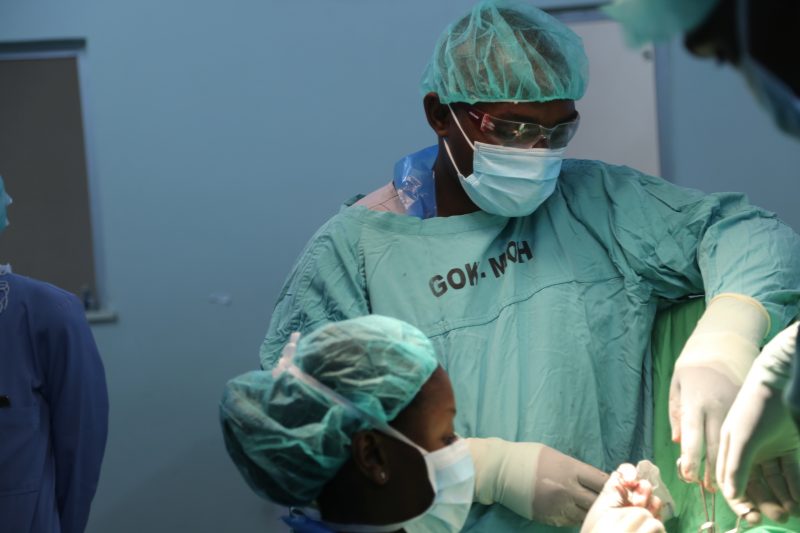By Dr Elizabeth Wala
The International Day to End Obstetric fistula (IDEOF) is marked annually on May 23rd to raise awareness and intensify actions towards ending obstetric fistula.
Here in Kenya, the event was hosted by Kilifi County Government which held a week long fistula camp for screening and surgical treatment of obstetric fistula.
In Kenya, approximately 3,000 women and girls develop fistula every year, while the backlog of those living with untreated fistula is estimated to be between 30,000 and 300,000 cases.
The theme of this year is, “Leaving no one behind: let us commit to ending fistula now.” Eliminating fistula is a key element of “leaving no-one behind” and the world cannot claim to have achieved the Sustainable Development Goals (SDGs) targets if there is still a woman/girl left in the world who is suffering from fistula and being neglected.
Obstetric fistula is a severe maternal morbidity which can affect any woman or girl who suffers from prolonged or obstructed labour without timely access to an emergency Caesarean section.
It is one of the most devastating consequences of neglected childbirth and a stark example of health inequity in the world.
Although obstetric fistula has been eliminated in industrialized countries, it continues to afflict the most impoverished women and girls in the developing world, mainly those in rural and remote areas.
Fistula is almost entirely preventable when there is universal access to quality sexual and reproductive health care. To end obstetric fistula, we must ensure Universal access to reproductive health services; eliminate gender-based social and economic inequities; Prevent child marriage and early childbearing; Promote education and broader human rights, especially for girls and foster community participation in finding solutions, including through the active involvement of men. Ensuring access to fistula treatment (surgical repair) for all women and girls is also a key strategy for eliminating it.
Eliminating obstetric fistula requires scaling up the country’s capacity to provide access to comprehensive emergency obstetric care, treat fistula cases, and address underlying medical, socioeconomic, cultural and human rights determinants.

Dr Mulatya Wambua and Dr Charlotte Kaliti repairing a fistula patient
One of the greatest barriers to good health among poor communities is the separation of communities from formal health systems, coupled with the low capacity of the health system particularly at lower health care levels.
The persistence of fistula reflects broader health inequities and health-care system constraints, as well as wider challenges facing women and girls, such as poverty, gender and socioeconomic inequality, lack of schooling, child marriage and early childbearing, all of which impede the well-being of and opportunities for women and girls.
Amref Health Africa’s Obstetric Fistula programme, established in 1992, aims at improving the quality of life for women with debilitating childbirth injuries through surgical interventions and community interventions to prevent Obstetric Fistula.
Since its inception, the programme has been involved in large scale surgical interventions targeting women and girls with obstetric fistula. The programme trains doctors, nurses and midwives in Obstetric Fistula awareness, prevention, surgical repair and post-operative care. This has seen an increase in the demand for operations.
By providing on-job training and supportive supervision of rural health workers, the programme also gives city-based specialists the opportunity to practice rural medicine in resources-constraint settings.
The community health volunteers are at the core of this programme ensuring that the communities are well informed to be able to make appropriate choices in pregnancy, delivery and post-delivery creating demand for maternal health services.
The campaign has also drawn the attention of policymakers, health professionals, affected communities and individuals, as well as the general public, to the issue of obstetric fistula. Article 43 (1) of the Bill of Rights in the Kenya Constitution guarantees access to health care that includes reproductive health care.
Occurrence of fistula is a sign of neglect at the time of delivery and is constitutionally a violation of the rights of affected women.
These partnerships with communities, county authorities and the national government provides avenues for reducing the existing disparities in health care affecting the poorest communities and have shown the need to build bridges between communities and health systems as well as the need to develop institutional capacity to improve health and reduce poverty.
Dr Elizabeth Wala is the Programme Director, Health Systems Strengthening, Amref Health Africa in Kenya
